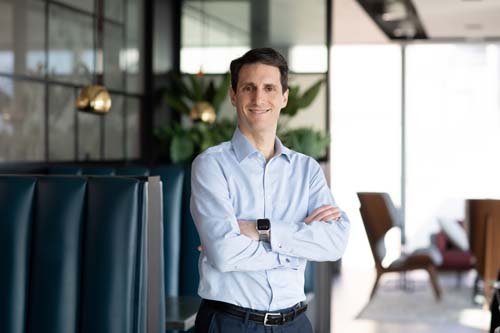Die Softwarebranche stellt zusätzliche Herausforderungen beim Erlangen von Patentschutz dar. Neben den üblichen Anforderungen an Neuheit und Nichtoffensichtlichkeit unterliegt Software auch bestimmten Ausnahmen vom Patentschutz, wenn sie eine Geschäftsmethode, einen Verwaltungsprozess, eine Simulation oder eine andere für „nichttechnisch“ befundene Nutzung implementiert. Beispielsweise würde Software, die sich auf den Kauf von Aktien oder die Modellierung von Risiken konzentriert, nicht als technisch gelten. Umgekehrt können computerimplementierte Erfindungen geschützt werden, die extern auf Geräte einwirken (wie Motormanagementsysteme), den Betrieb von Computern verbessern (z. B. Berechnungen beschleunigen) oder Daten effizienter oder sicherer speichern oder verarbeiten. Patentanmeldungen für computerimplementierte Erfindungen müssen daher besonders sorgfältig vorbereitet werden.
Um die Sache noch komplizierter zu machen, wenden die verschiedenen Ämter für geistiges Eigentum weltweit unterschiedliche Rechtsvorschriften und Regeln für Softwareerfindungen an. Die US-amerikanischen, europäischen und britischen Ämter für geistiges Eigentum gehen alle unterschiedlich mit Ausnahmen für Geschäftsmethoden um. Eine sorgfältige Ausarbeitung in Absprache mit dem Erfinder und Erfahrung im Umgang mit Einsprüchen zu ausgeschlossenen Gegenständen sind entscheidend für den Erfolg.
Hin und wieder kommt etwas völlig Neues auf den Markt: beispielsweise Blockchain, KI oder verteilte Netzwerke, und das Patentrecht hat oft Mühe, mit dem Tempo der Veränderungen Schritt zu halten. Patentanwälte und ihre Mandanten müssen über diese Entwicklungen auf dem Laufenden bleiben.
The computing and software team
Software is essential to modern business across all industries. Accordingly, our substantial computing and software team supports a huge variety of clients in differing industries, including insurance, banking, health, and telecommunications.
We offer a hands-on approach to drafting patent specifications for clients across various industries. We prepare patent applications that demonstrate the technical effect of our clients’ products, to maximise their prospects for grant. To do so, we draw from our expert understanding and experience within software and computing industries, with our team having real-world experience as software engineers or consultants, prior to entering the patent world.
We frequently represent clients on international matters, navigating cases before the UK, European and other international intellectual property offices.
“I love the technical and legal challenges of obtaining patent protection for computer implemented inventions. It can be possible to obtain valid patents around the world for this type of technology, but it requires careful analysis and up-to-date knowledge.”

Audiomob ist ein ursprünglich in Großbritannien gegründetes und weltweit tätiges Audio-Werbeunternehmen, das Software entwickelt, mit der Werbung in Handyspielen abgespielt werden kann, ohne das Spiel zu unterbrechen.
Unser Team hat Patente für die Software von Audiomob vorbereitet, beantragt und erteilt bekommen und entwickelt und betreut ein rasch wachsendes Portfolio in 26 Ländern.
Die preisgekrönten Gründer und Erfinder von AudioMob, Christian Facey und Wilfrid Obeng, haben das Start-up Audiomob inzwischen zu einem Unternehmen mit einem Wert von über 100 Millionen US-Dollar ausgebaut. Sie legen großen Wert auf die unternehmenseigenen Patente und die Zusammenarbeit mit Boult.
Die Softwarebranche stellt zusätzliche Herausforderungen beim Erlangen von Patentschutz dar. Neben den üblichen Anforderungen an Neuheit und Nichtoffensichtlichkeit unterliegt Software auch bestimmten Ausnahmen vom Patentschutz, wenn sie eine Geschäftsmethode, einen Verwaltungsprozess, eine Simulation oder eine andere für „nichttechnisch“ befundene Nutzung implementiert. Beispielsweise würde Software, die sich auf den Kauf von Aktien oder die Modellierung von Risiken konzentriert, nicht als technisch gelten. Umgekehrt können computerimplementierte Erfindungen geschützt werden, die extern auf Geräte einwirken (wie Motormanagementsysteme), den Betrieb von Computern verbessern (z. B. Berechnungen beschleunigen) oder Daten effizienter oder sicherer speichern oder verarbeiten. Patentanmeldungen für computerimplementierte Erfindungen müssen daher besonders sorgfältig vorbereitet werden.
Um die Sache noch komplizierter zu machen, wenden die verschiedenen Ämter für geistiges Eigentum weltweit unterschiedliche Rechtsvorschriften und Regeln für Softwareerfindungen an. Die US-amerikanischen, europäischen und britischen Ämter für geistiges Eigentum gehen alle unterschiedlich mit Ausnahmen für Geschäftsmethoden um. Eine sorgfältige Ausarbeitung in Absprache mit dem Erfinder und Erfahrung im Umgang mit Einsprüchen zu ausgeschlossenen Gegenständen sind entscheidend für den Erfolg.
Hin und wieder kommt etwas völlig Neues auf den Markt: beispielsweise Blockchain, KI oder verteilte Netzwerke, und das Patentrecht hat oft Mühe, mit dem Tempo der Veränderungen Schritt zu halten. Patentanwälte und ihre Mandanten müssen über diese Entwicklungen auf dem Laufenden bleiben.
The computing and software team
Software is essential to modern business across all industries. Accordingly, our substantial computing and software team supports a huge variety of clients in differing industries, including insurance, banking, health, and telecommunications.
We offer a hands-on approach to drafting patent specifications for clients across various industries. We prepare patent applications that demonstrate the technical effect of our clients’ products, to maximise their prospects for grant. To do so, we draw from our expert understanding and experience within software and computing industries, with our team having real-world experience as software engineers or consultants, prior to entering the patent world.
We frequently represent clients on international matters, navigating cases before the UK, European and other international intellectual property offices.
What sets us apart
We are collegiate in the way we work, disseminating ideas and information across the entire team. This is particularly important in the software space given its inherent complexity and fast-moving regulatory nature. Recent decisions and cases are always discussed as a team, as are hearings and procedures that might affect ongoing patent drafting or prosecution. This enables us to stay at the leading edge of what is important within the ever-changing regulatory space, allowing us and our clients to stay ahead of the curve. We also employ excellent invention mining processes to capture our clients’ inventions. We also undertake industry research to remain up-to-date with legislative changes and technical developments.